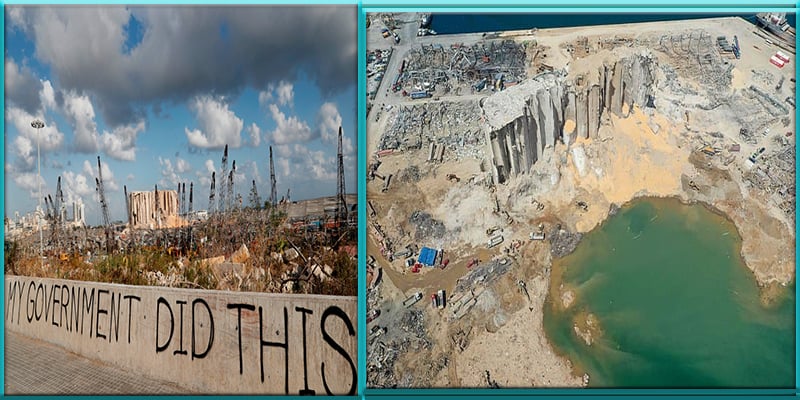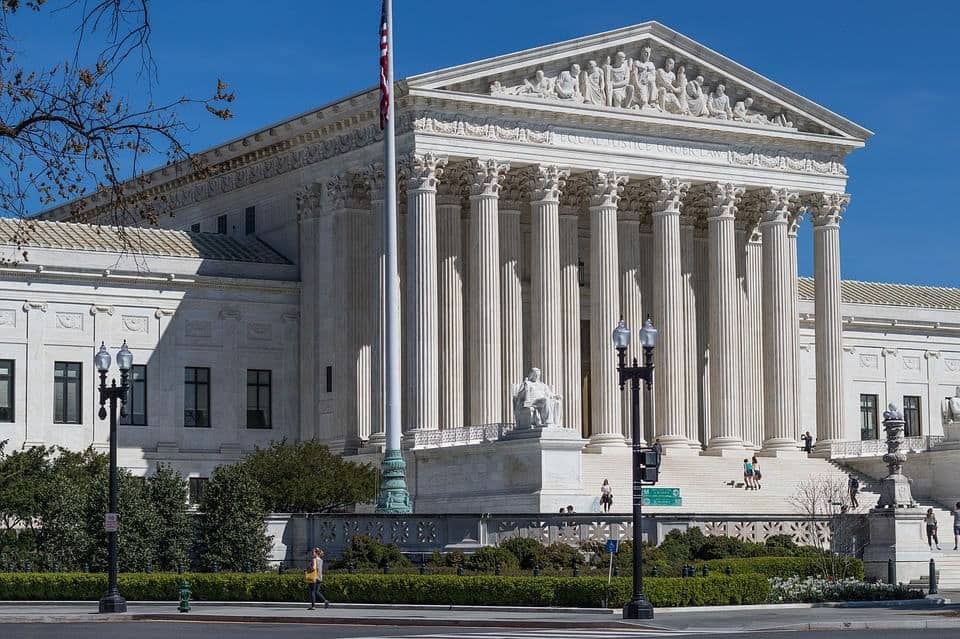Lebanon’s Government Resigns Over Public Outrage From Beirut Blast that Killed at Least 160 People, Injuring 6,000
(The AEGIS Alliance) – LEBANON – The Prime Minister of Lebanon resigned from his position on Monday in the aftermath of the devastating blast in Beirut that stirred up a lot of public outrage in the country, and said he came to the conclusion that the country’s corruption is “bigger than the state.”
The resignation comes with a risk that could end up dragging out negotiations for a new Cabinet during a time when there are urgent calls to reform. This decision comes after a weekend of anti-government protests because of the massive explosion in Beirut’s port on August 4 that was catastrophic, destroying the port facility and causing widespread damage. The blast killed at least 160 people and injured about 6,000 others.
In a brief speech televised on local media following the resignation of three of his ministers, Prime Minister Hassan Diab said he will take “a step back” so he can better stand with the Lebanese people “and fight the battle for change alongside them.”
“I declare today the resignation of this government. May God protects Lebanon,” he stated and repeated the last phrase three times.
The moment epitomized the conundrum Lebanon is dealing with. Mass demonstrations demanding the entire sectarian-based leadership’s departure have been going on since last October due to incompetence, mismanagement, and deeply rooted corruption.
But the oligarchy rulers have remained in power for quite some time since the Lebanese civil war ended in 1990. It is challenging to locate a political figure who is credible and unconnected to the civil war.
Diab placed blame on corrupt politicians who came before him for the “earthquake” that rocked Lebanon.
“They [political class] should have been ashamed of themselves because their corruption is what has led to this disaster that had been hidden for seven years,” Diab mentioned.
“I have discovered that corruption is bigger than the state and that the state is paralyzed by this (ruling) clique and cannot confront if or get rid of it,” Diab said, who used to be a professor at the American University of Beirut before taking up the official position.
Diab’s resigning looked to be unavoidable after the catastrophic explosion. He did not want to leave and only a couple of days ago gave a speech on TV offering to remain in his position for two more months to let varying factions agree on a reform plan. However, the pressure from inside his own Cabinet was proven to be too heavy of a burden.
Diab’s government came into power after Saad Hariri his predecessor resigned in October in response to the protests and demonstrations. Months of arguing among the leadership factions went by before they agreed on Diab.
Diab’s government that has been supported by the Hezbollah militant group and its allies that are views as being one-sided, was simply doomed from the beginning. Diab was given the task to meet reform demands but all of the factions that reformers want to be ousted were in control. The process is now expected to begin again, with Diab’s government playing the role of caretaker as those same factions debate reforms.
“I hope that the caretaking period will not last long because the country cannot take that. Let’s hope a new government will be formed quickly. An effective government is the least we need to get out of this crisis,” reporters were told by Public Works Minister Michel Najjar.
Protests over the weekend resulted in clashes with law enforcement who fired tear gas at protesters.
The igniting of a 2,750-ton stockpile of highly volatile ammonium nitrate is believed to have caused the devastating blast. The explosive material was being stored at the Beirut port since 2013 with not many safety measures in place even after several dangerous warnings.
This resulted in a catastrophe the Lebanese people blame solely on their government leadership’s negligence and corruption. The devastating explosion is estimated to carry a loss between $10 billion to $15 billion, with almost 300,000 residents now homeless because of it.
The final decision was taken by Diab’s government before it resigned to refer the explosion case to the Supreme Judicial Council, which deals with crimes that infringe on Lebanon’s national security, and also state and political security crimes. The Supreme Judicial Council is the top judicial body in Lebanon.
On Monday a judge asked questions to the country’s heads of security agencies. Public Prosecutor Ghassan El Khoury questioned the head of State Security Major General Tony Saliba, the state-run National News Agency reported. It didn’t give any additional details, but other generals are expected to face questioning.
State Security had put together a report about the dangers of the material being stored at the port and on July 20 had sent a copy to the prime minster’s and president’s offices. The investigation involved looking into how the ammonium nitrate was stored at the port, to begin with, and why anything wasn’t being done about it. The materials are believed to have been confiscated from a ship years ago and sat in a warehouse at the port for years.
Public Works Minister Najjar said he found out about the stored materials one day before the explosion, and had received a report regarding the material and having a meeting with port officials before calling Hassan Korayetem, the port’s chief.
“I wrote a report in the morning the explosion happened in the evening. I don’t know. Truly I don’t know,” Najjar said when asked why he had just only learned about it one day before.
Around 20 people were detained following the explosion, including Lebanon’s head of its customs department and the official who came before him, along with the head of the Beirut port. Dozens of people faced questioning, including two former Cabinet ministers, government officials say.
International organizations and world leaders pledged almost $300 million for emergency humanitarian aid to Beirut on Sunday but gave warning that there won’t be any money towards rebuilding the capital until Lebanese officials make a commitment to the people’s demands for economic and political reforms.
Kyle James Lee – The AEGIS Alliance – This work is licensed under a Creative Commons Attribution-ShareAlike 4.0 International License.






